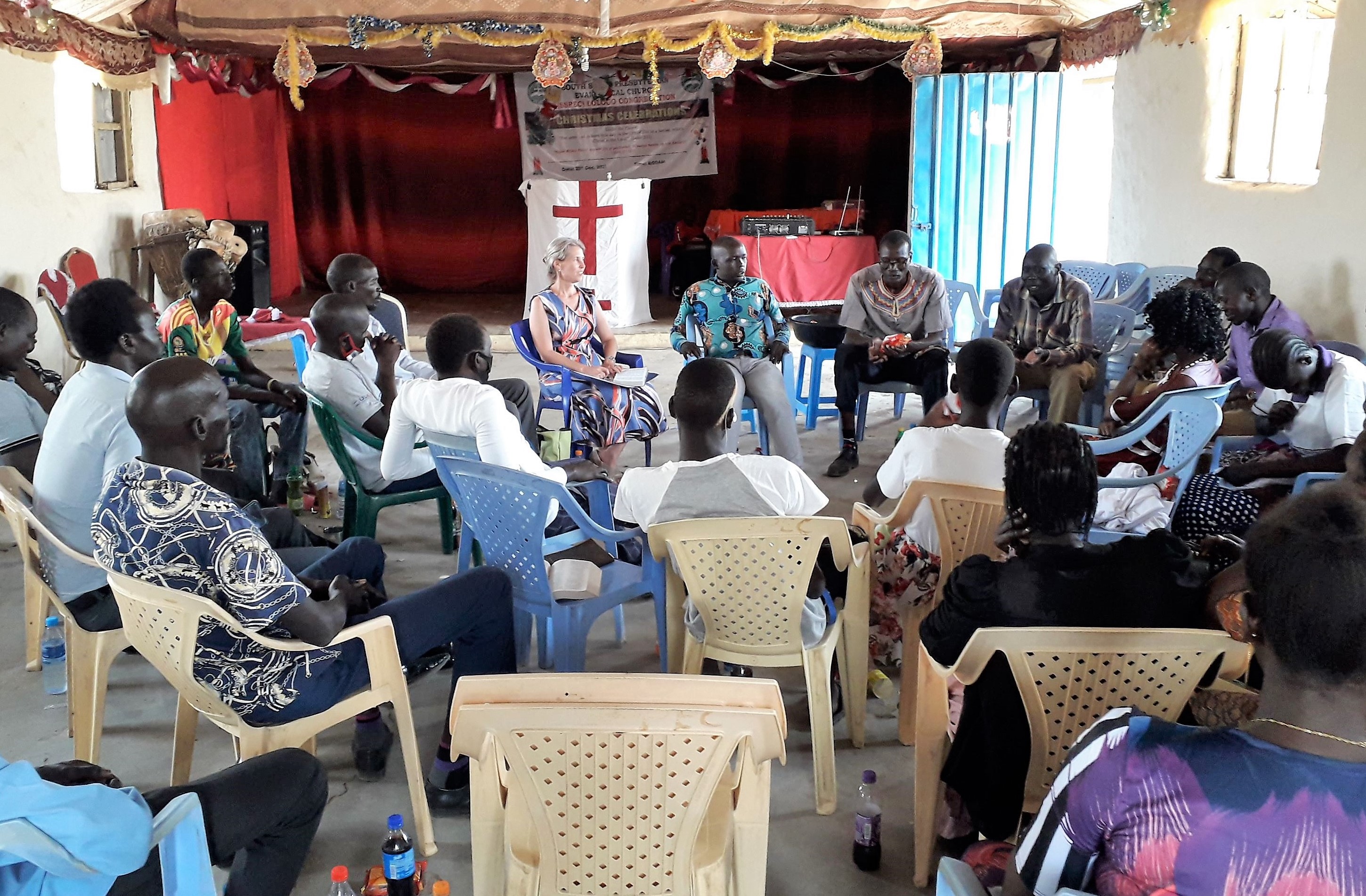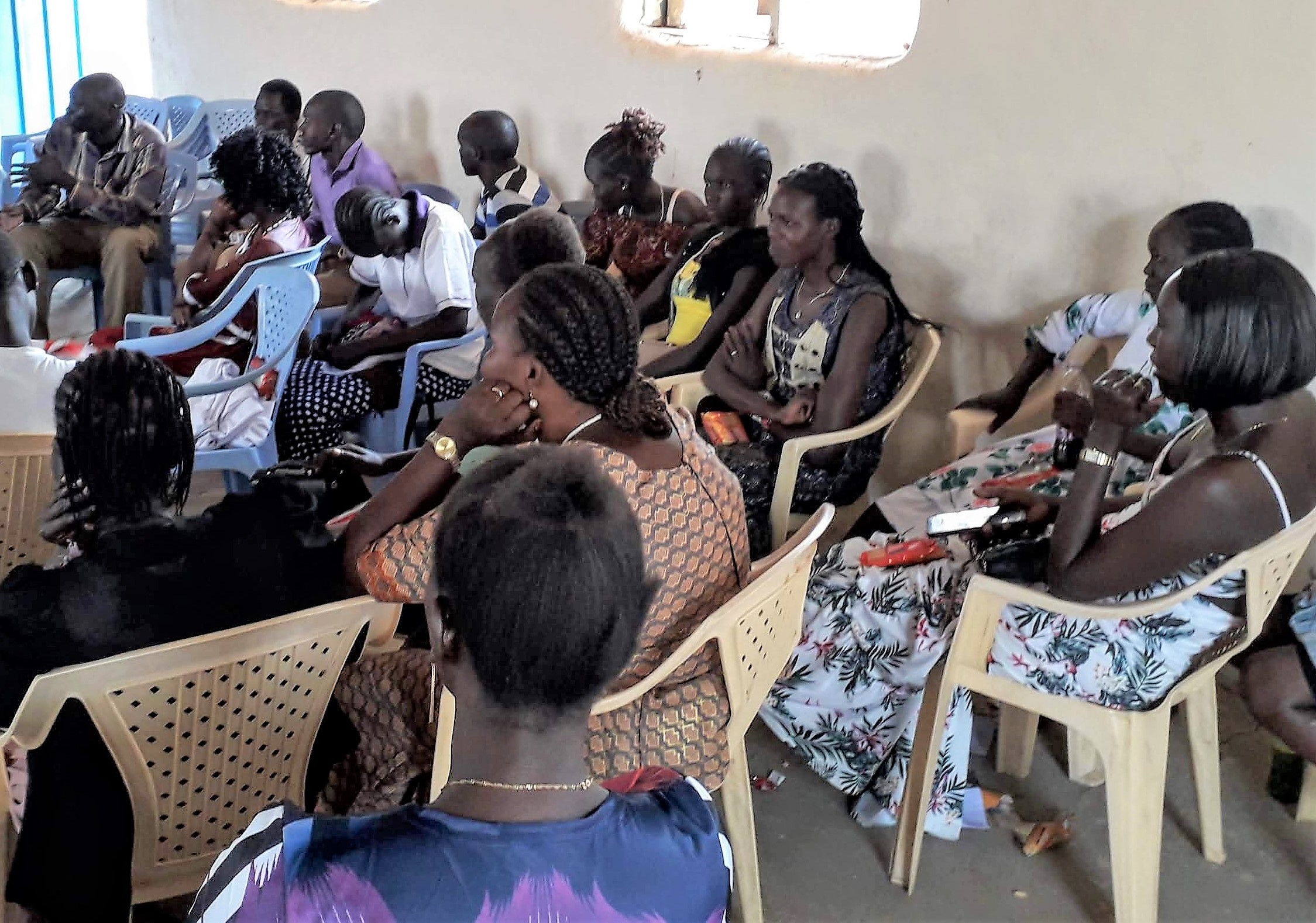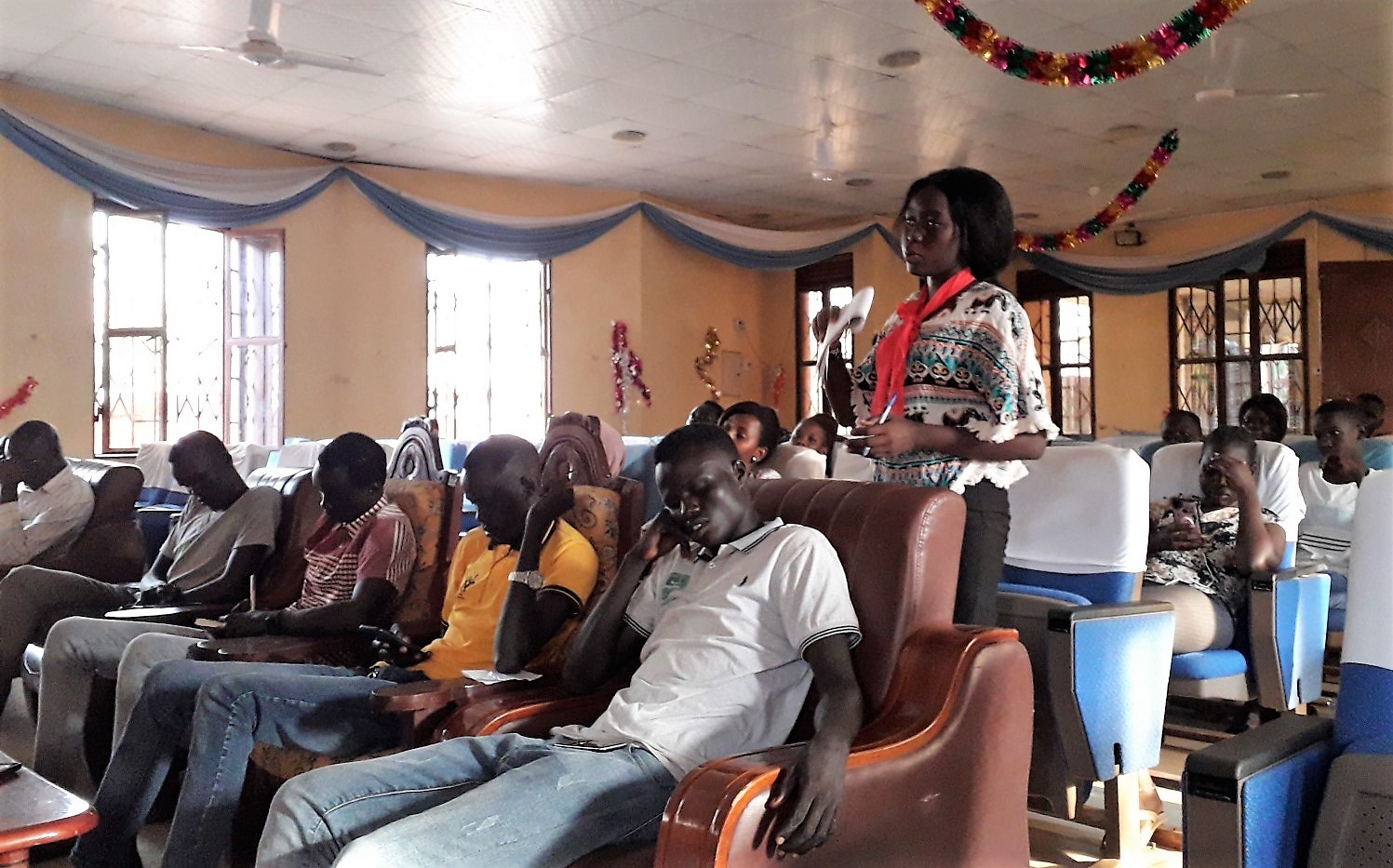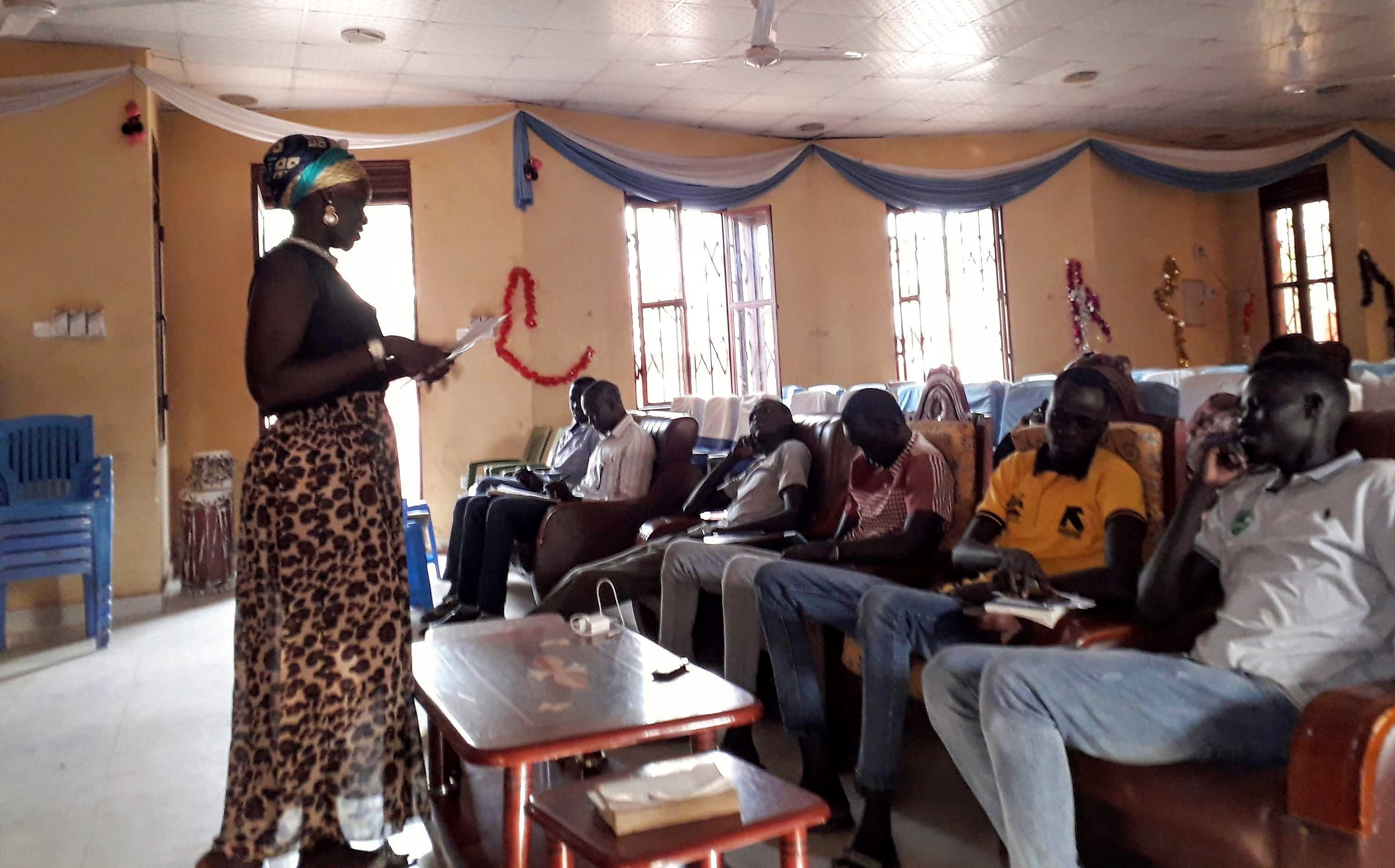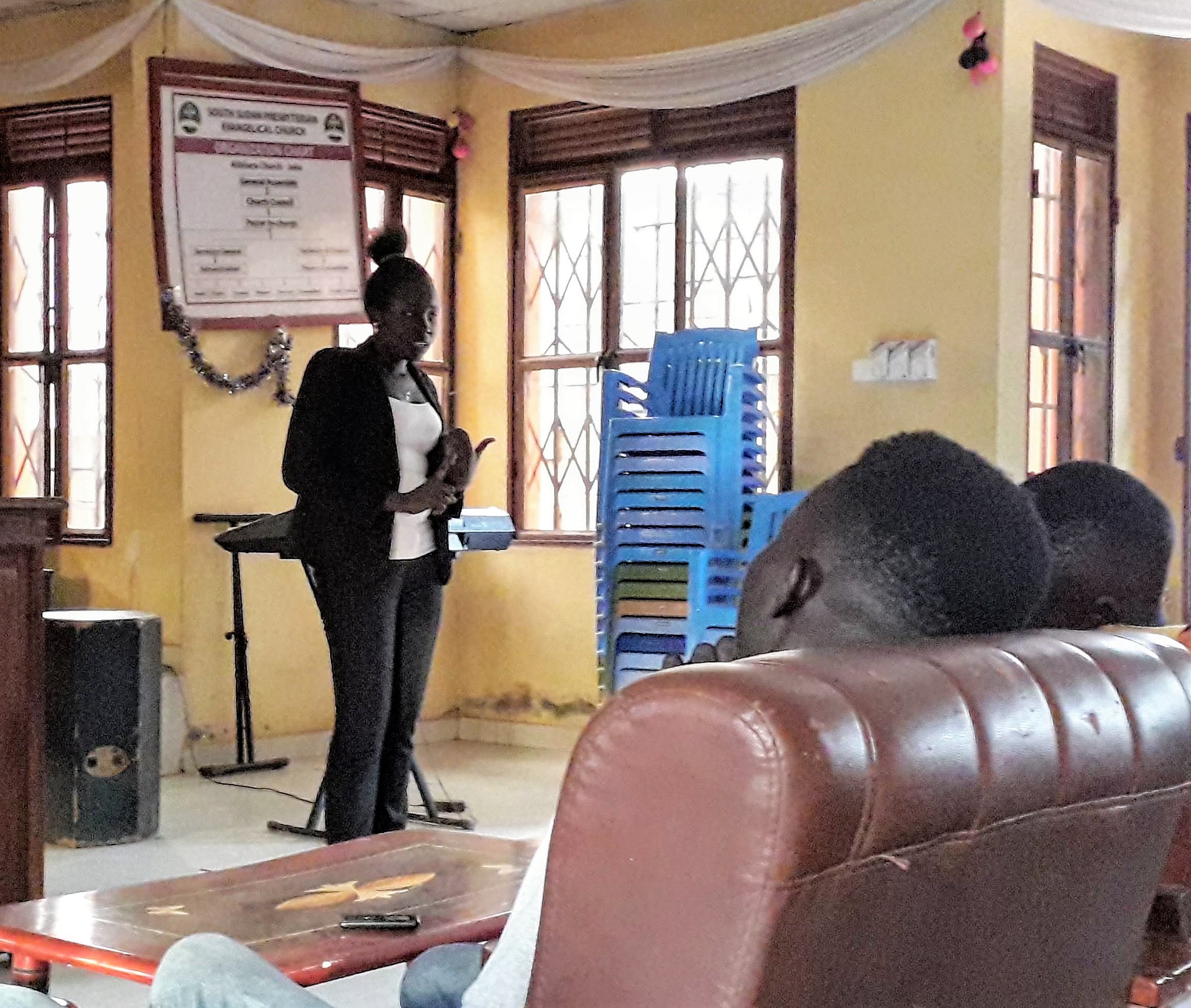A Letter from Bob and Kristi Rice, serving in South Sudan
Summer 2022
Write to Bob Rice
Write to Kristi Rice
Individuals: Give to E132192 in honor of Bob and Kristi Rice’s ministry
Congregations: Give to D500115 in honor of Bob and Kristi Rice’s ministry
Churches are asked to send donations through your congregation’s normal receiving site (this is usually your presbytery)
Subscribe to our co-worker letters
Dear friends,
Young men and women leaned in thoughtfully as I described how Ida B. Wells risked her life to investigate and publish the truth about the lynchings that were happening across the U.S. in the late 1800s and early 1900s. “The environment in South Sudan is a lot like that,” one young man said, “you cannot speak the truth about the injustice that is happening. You will be silenced.” The youth were impressed by how Ida Wells endured opposition, threats, and discrimination to write and speak tirelessly about the brutal culture of lynching and how it opposed God’s standard of justice. While many churches at that time feared speaking out even if they opposed lynching, Ida Wells carried on.
Nyadak, one of the youth leaders, led us in a Bible study about God’s view of justice. One verse we looked at was Deuteronomy 16:19-20, “Do not pervert justice or show partiality. Do not accept a bribe, for a bribe blinds the eyes of the wise and twists the words of the innocent. Follow justice and justice alone, so that you may live and possess the land the Lord your God is giving you.” The youth lamented that bribes and partiality are accepted ways of life in South Sudan. We discussed the risks and challenges of living according to God’s standard of justice when it runs counter to the culture. The youth really took encouragement from Ida B. Wells, who was orphaned as a child and had to work hard to get an education while also caring for younger siblings; and then faced severe discrimination as a woman and an African American in her work as a journalist.
This year youth leaders of the South Sudan Presbyterian Church in Juba organized several discussions for youth at different churches to look together at an aspect of God’s character along with learning some of the history of the fight for racial justice in the U.S. The youth found many similarities in the opposition and injustice faced by African Americans in the U.S. with their situation in South Sudan today. They were grateful to learn of some of the heroes like Ida B. Wells and Harriet Tubman, who overcame tremendous challenges and took great personal risks to make significant impacts on shifting public opinion and even laws to promote justice.At the Lologo church, young people expressed frustration and anger over the abductions of women and children in their home area. “There is no justice or accountability for the criminals abducting people,” they lamented, “but our leaders could put a stop to this if they wanted to.” They also described the discrimination women face in forced marriages and that their voice is often not heard or given weight when conflicts arise in marriage. They knew the pain of feeling oppressed and marginalized – of feeling that other groups were given power and preference that they were not.
The youth in Lologo were excited to learn about the example of Harriet Tubman, who was convinced that God opposed slavery, even though many pastors in her day used the Bible to support it. It was her strong faith that guided her on risky missions to return to Virginia and lead people to freedom. Inspired by her sacrifice and courage, some of the youth said, “maybe we should return to be with our people in Pochalla.” Another person suggested building relationships with politicians and people in authority to advocate for people who suffer injustice.
One young man encouraged everyone to develop a “peace habit” rather than just a one-time “peace resolution.” For example, cultivating a habit of apologizing and being willing to acknowledge wrongs, rather than always insisting you are right or promoting your own interests.
The youth were very grateful for the chance to learn about some of these heroes in American history whose faith motivated them to fight for justice. The animated discussions explored the challenges of living according to God’s way in a world that often turns a blind eye to injustice. We began this initiative as a way to build on the healing and reconciliation workshops that SSPEC does by holding shorter discussions that would explore topics of justice.
With 64 different ethnic groups and languages in South Sudan, discrimination against other groups is pervasive. But God calls us to a higher identity and allegiance as children of God, recognizing each person as created in God’s image and worthy of respect and dignity. I look forward to seeing what God will do through these youth in South Sudan who see the injustice around them and are committed to living in a way that reflects God’s priorities of justice and equality and Jesus’ example of humility and sacrificial love.
Please pray with us for God to lead and empower these young people to have a positive impact in their communities. We are grateful to you for your interest, prayers and support for God’s work in South Sudan. We take great encouragement in knowing that you join us in this ministry!
In Christ,
Bob and Kristi
![]() You may freely reuse and distribute this article in its entirety for non-commercial purposes in any medium. Please include author attribution, photography credits, and a link to the original article. This work is licensed under a Creative Commons Attribution-NonCommercial-NoDeratives 4.0 International License.
You may freely reuse and distribute this article in its entirety for non-commercial purposes in any medium. Please include author attribution, photography credits, and a link to the original article. This work is licensed under a Creative Commons Attribution-NonCommercial-NoDeratives 4.0 International License.
